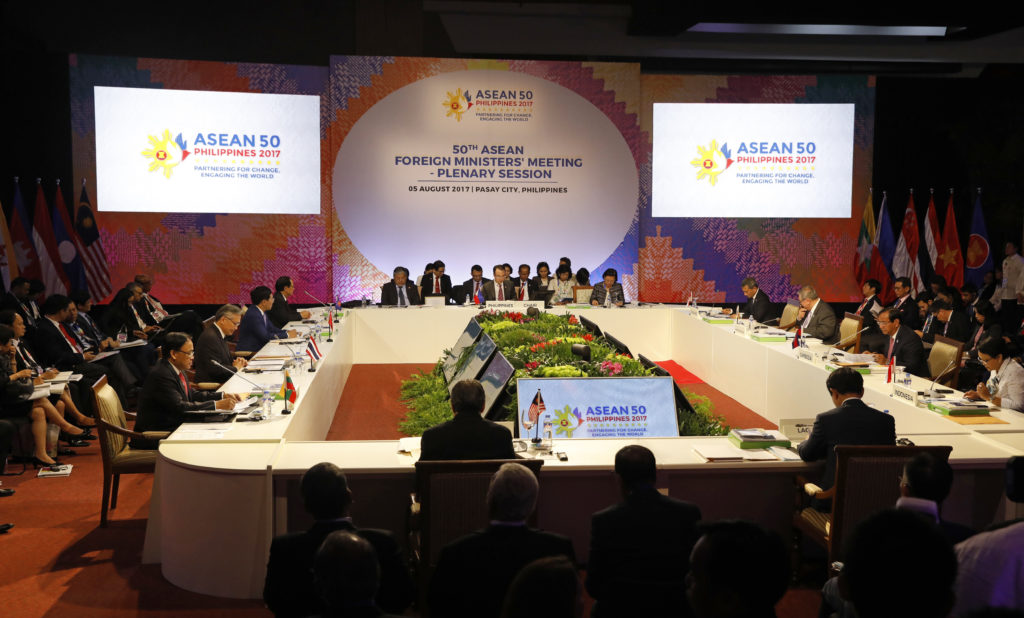Asean ministers endorse framework for S. China Sea ‘Code of Conduct’

Asean foreign ministers take part in a meeting of the 50th Association of Southeast Asia Nations (Asean) Regional Forum in Manila, Philippines, Saturday, Aug. 5, 2017. (Erik De Castro/Pool Photo via AP)
Foreign ministers from the Association of Southeast Asian Nations (Asean) on Saturday endorsed the framework of the Code of Conduct (COC) of Parties in the South China Sea, the Department of Foreign Affairs (DFA) said.
Foreign Affairs spokesperson Robespierre Bolivar said the foreign ministers endorsed during their Asean meeting at the Philippine International Convention Center (PICC) the framework for adoption during the Asean-China meeting slated on Sunday.
“The ministers endorsed the framework of the code of conduct for eventual adoption the Asean-China Ministerial meeting on August 6,” Bolivar said in a press conference in Pasay City.
Bolivar said the Philippines was pushing for a legally-binding sea code.
“Well, the Philippines, the Secretary has mentioned that the Philippine position is preferably for a legally-binding instrument,” he said. “As I mentioned just before , the Secretary has mentioned that the Philippine position, the Philippine preference is for a legally-binding code of conduct.”
Article continues after this advertisementA draft copy of the framework obtained by INQUIRER.net states that the sea code is “not an instrument to settle territorial disputes or maritime delimitation issues.”
Article continues after this advertisementREAD: ‘Code of Conduct framework not instrument to settle territorial disputes’
A draft framework, which would be endorsed by Asean and China foreign ministers on August 6, in Manila, would be “rules-based,” containing “a set of norms to guide the conduct of parties and promote maritime cooperation in the South China Sea.”
[ventuno id=’OTc4MzgwfHwyMzY4fHwxMDg2fHwxLDIsMQ==’][/ventuno]
The parties agreed that the framework must “promote mutual trust, cooperation and confidence, prevent incidents, manage incidents should they occur and create a favorable environment for the peaceful resolution of disputes.”
They also decided to maintain “respect for each other’s independence, sovereignty and territorial integrity in accordance with international law, and the principle of non-interference in the internal affairs of other states.” JPV